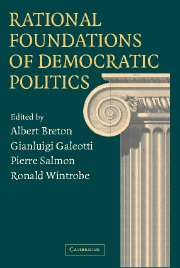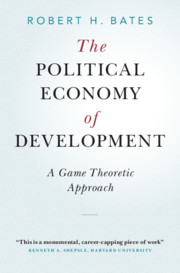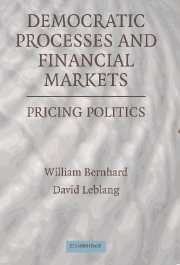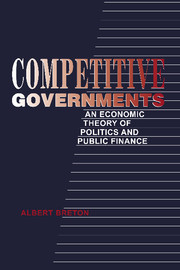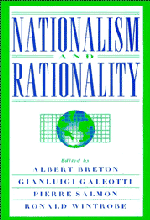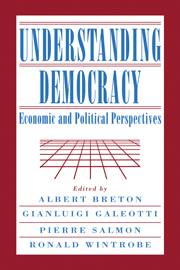Rational Foundations of Democratic Politics
Democracy is widely accepted today as the most suitable form of government. But does democracy always produce good government? Although often associated with the existence of competitive elections, theory and experience suggest that this insufficiently determines democracy's effectiveness. Accordingly, experts from America and Europe use the modern theory of rational choice to explore the "foundations" that make democracy successful. They consider the diverse problems of modern democratic politics such as the importance of civic virtue, negative advertising, the interaction of democracy and markets, and the role of constitutions and civil society in sustaining democracy.
- Fifth collection in political economy for Cambridge University Press by these internationally known coeditors and contributors
- Major names include M. Munger and D. Wittman (political science), S. Skaperdas (economics)
- Hot topics covered include negative ads, citizens 'vs.' consumers, social capital, economic assessment of democratic solidarity, etc.
Product details
September 2003Hardback
9780521822541
270 pages
235 × 160 × 20 mm
0.523kg
Temporarily unavailable - available from TBC
Table of Contents
- 1. Introduction Albert Breton, Gianluigi Galeotti, Pierre Salmon and Ronald Wintrobe
- Part I. Some Problems with Democratic Institutions and Trends in Their Evolution:
- 2. Demobilization, demoralization and the loosening bonds of electoral politics Michael C. Munger
- 3. Turning 'citizens' into 'consumers': economic growth and the level of public discourse Stergios Skaperdas
- 4. Economic and cultural prerequisites for democracy Roger D. Congleton
- 5. Civil society and the contemporary social order Frédérique Chaumont-Chancelier
- Part II. Morals in Politics:
- 6. When does altruism overcome the intransitivity of income redistribution? Donald Wittman
- 7. Democratic resilience and the necessity of virtue Alan Hamlin
- Part III. Social Capital:
- 8. The optimal level of solidarity Ronald Wintrobe
- 9. The bonds of democratic politics - an economic perspective Stefan Voigt
- Part IV. The Role of Constitutions:
- 10. Voting rules: a constitutional quandary Gianluigi Galeotti
- 11. Citizens' sovereignty, constitutional commitments and renegotiation: original vs. continuing agreement Viktor J. Vanberg
- 12. Constitutional rules and competitive politics: their effects on secessionism Albert Breton and Pierre Salmon.

